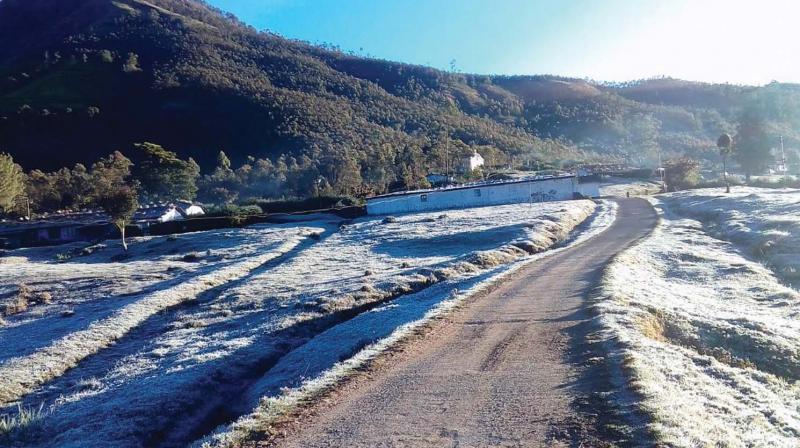Plains of Kerala too shiver this season

Kochi: Temperatures in Kerala have dropped by an astounding four degrees this winter in the plains and the lowest recorded is 17 degrees Celsius in Kochi itself. According to scientists, a volcano eruption in Indonesia also has contributed to the phenomenon.
In a major fallout, the tea plantations in Munnar have faced extensive damage due to frost as temperatures have gone down to -4 degrees in the area. However, the inflow of tourists has increased, especially of those within the state and from neighbouring Tamil Nadu, to experience the unusual chill.
"In Kerala, some places on Tuesday recorded minimum temperatures as low as 17 °C, and the daytime maximum temperature as high as 33.5 °C.
The observatory at Advanced Centre for Atmospheric Radar Research (ACARR) of Cochin University of Science and Technology in Kochi has recorded a minimum temperature of 17.5 °C on January 4 this year, the lowest of value during the past five years," said Dr M.G. Manoj, research scientist with ACARR of Cusat.
"The corresponding value for the previous year was 21.5 °C, indicating a substantial fall of 4 °C in this year. This record fall in minimum temperature is, in general, equivalent to the minimum temperatures persisting over central India, an intriguing fact worth scientific investigation. The sudden drop of temperature is mainly due to a southward curving of winter phenomenon known as Western Disturbance (WD), a strong, polar-linked westerly winds that bring severe cold air to the Indian land mass and subsequently to the southern peninsula," said Dr Manoj.
"Yet another factor for the large drop in temperature over the country is the large mass of aerosol particles spread into stratospheric altitudes due to the recent volcanic eruption in Indonesia. These ash particles are capable of blocking the incoming solar radiation to the earth's surface, thus making the land cooler. However, the exact quantification of its effect on surface temperature needs further in-depth investigation," Dr Manoj added.
The officials of Kannan Devan Hill Produce Company, a plantation major of Munnar, said that around 870 hectares of tea plantations have been affected with frost and the estimated loss of green leaf is 26.47 lakh kgs(23.83 lakh kg last year) which amounts to a decline in the production of 6.75 lakh kg (6.31 lakh kg last year) of black tea, causing heavy loss of revenue worth several crores. This has happened when the sector is yet to come out of the severe loss caused by the landslides and floods in August. Chundavurrai in Munnar has recorded the lowest of -4 degrees Celsius in this season.

